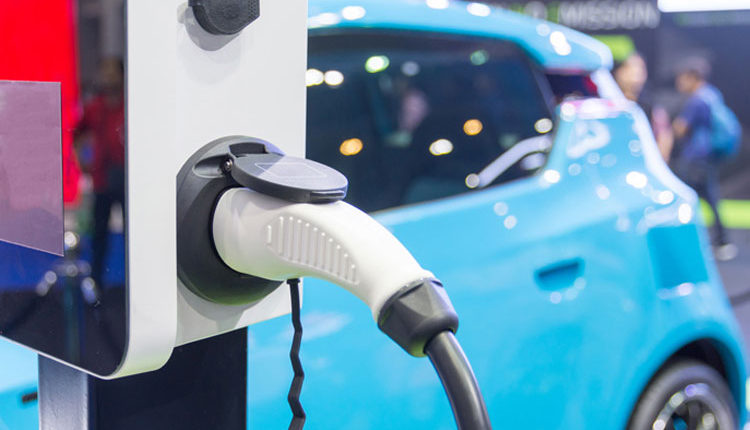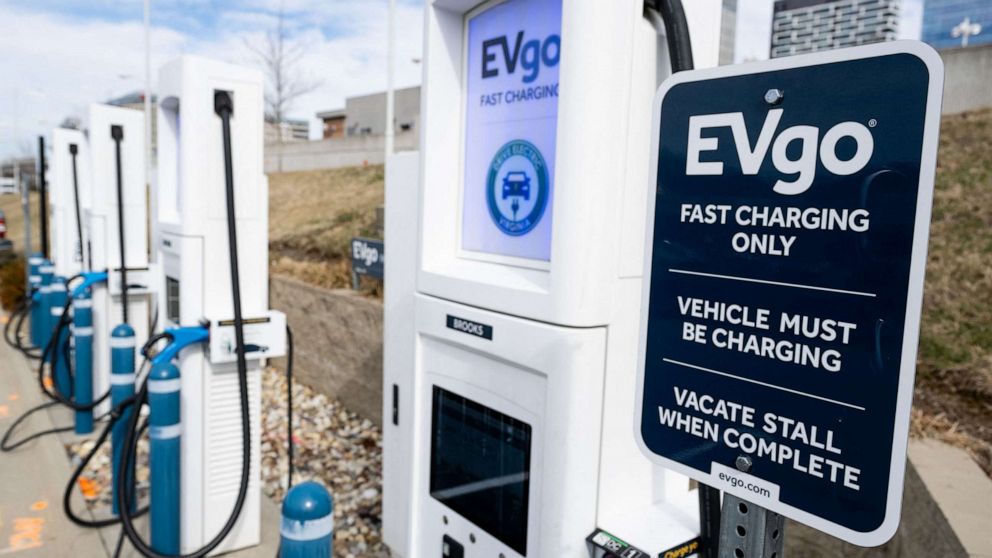Everything You Should Know Before You Decide to Buy EV Charging news
Why 2024 Is a Game-Changer for EV Charging: Patterns and Insights
As we approach 2024, the electric lorry (EV) charging landscape is established for substantial transformation, driven by the spreading of ultra-fast charging stations and advancements in wise charging technologies. The incorporation of eco-friendly power resources alongside positive government policies is most likely to redefine the sustainability and ease of access of EV facilities.

Growth of Ultra-Fast Charging Stations
Just how rapidly are ultra-fast charging terminals transforming the electric automobile landscape? The proliferation of ultra-fast charging stations is a pivotal advancement in the EV industry, considerably improving the comfort and expediency of electrical lorry possession. These terminals, efficient in delivering billing rates up to 350 kW, can charge an EV's battery to about 80% in as little as 15-30 mins, properly minimizing array anxiety among customers.
The growth of ultra-fast charging facilities is being driven by both exclusive and public financial investments, showing a tactical change towards lasting transportation services. Major vehicle producers and energy business are working together to mount these terminals along significant freeways and city facilities, producing a considerable network that sustains long-distance traveling and daily usage.
Furthermore, innovations in battery innovation are matching this development, allowing vehicles to make the most of the raised billing speeds. As the number of ultra-fast charging terminals remains to increase, they are expected to play a critical role in speeding up EV fostering, promoting a transition in the direction of a cleaner and even more sustainable future. This expansion not just boosts individual experience yet additionally solidifies the feasibility of electric cars as a mainstream transportation option.
Breakthroughs in Smart Charging Technology
With the boosting combination of digital technology in the electrical automobile sector, breakthroughs in clever charging technology are substantially enhancing the effectiveness and convenience of EV billing. Smart billing systems utilize connectivity and data analytics to optimize the charging process, permitting individuals to bill their vehicles when electrical power rates are least expensive and demand on the grid is marginal.

Interoperability is another critical advancement, as new criteria and protocols enable various EV versions and charging terminals to interact perfectly. This boosts individual experience by supplying extra obtainable billing options throughout numerous networks. Eventually, the advancement of smart charging innovation represents a substantial action in the direction of a more lasting and straightforward EV environment, paving the means for broader adoption and integration into day-to-day life.
Integration of Renewable Resource Resources
The integration of renewable energy resources right into EV charging infrastructure is coming to be increasingly crucial as the demand for sustainable solutions grows. This pattern not just aids reduce the carbon footprint connected with electrical car billing but also enhances grid durability by promoting decentralized power production.
Solar and wind power go to the center of this combination, with numerous charging terminals currently being or including photovoltaic panels constructed in distance to wind ranches. These sustainable resources can produce clean electrical power, giving a sustainable power supply for EVs. Developments in power storage space modern technologies, such as batteries, assist in the reliable storage of excess power produced throughout top production hours, ensuring that billing terminals can operate effectively also when sustainable generation is reduced.

Growth of Charging Facilities
As electrical lorry (EV) fostering accelerates, the expansion of charging infrastructure has actually come to be an essential focus for stakeholders across the automobile and power industries - EV Charging news. The need for a accessible and durable billing network is necessary to sustain the growing number of EVs when traveling and to reduce array anxiety among customers
In 2024, we are experiencing considerable investments from both exclusive firms and public entities focused on improving the billing landscape. This consists of the setup of fast-charging stations along highways and in city facilities, which can reenergize EVs in a fraction of the moment compared to conventional chargers. In addition, collaborations in between automakers and power providers are helping with the deployment of innovative billing solutions to fulfill diverse customer demands.
In addition, developments in modern technology are leading to smarter billing systems that optimize power circulation and decrease expenses. The integration of these systems is important for fitting the predicted rise in need as even more consumers change to electrical wheelchair. The growth of charging framework not just sustains the EV market however likewise plays an important role in accomplishing more comprehensive sustainability objectives, making it a pivotal component in the evolution of transportation.
Government Policies and Incentives
Government policies and incentives are increasingly forming the landscape of electrical car (EV) fostering and billing infrastructure growth. websites Federal governments worldwide are acknowledging the immediate need to transition to cleaner transportation options, bring about the implementation of various campaigns targeted at accelerating EV fostering. These policies usually consist of tax obligation credits, refunds, and gives for customers and services that purchase electric lorries and billing terminals.
In addition to route monetary incentives, numerous federal governments are establishing enthusiastic targets for EV sales and mandating the setup of billing facilities in new developments. Numerous nations have dedicated to phasing out inner burning engine cars within the following years, creating a sense of necessity that drives both consumers and makers towards electrical alternatives.
Furthermore, public-private collaborations are becoming a crucial component of these efforts, facilitating financial investment in charging networks and ensuring widespread gain access to. By aligning regulative structures with economic rewards, governments are not only fostering a favorable environment for EV adoption their explanation yet additionally resolving issues connected to vary anxiousness and billing schedule. This robust plan landscape is readied to make 2024 an essential year in the shift to electrical wheelchair.
Final Thought
The year 2024 is readied to change the electrical automobile billing landscape through the expansion of ultra-fast charging stations, improvements in smart charging modern technologies, and the assimilation of eco-friendly power resources. The expansion of charging infrastructure, reinforced by helpful government plans and incentives, will certainly attend to array stress and anxiety and improve the appeal of electrical lorry possession. Jointly, these advancements will foster a sustainable and obtainable setting for electric automobile fostering, making sure a robust future for the industry.
As we come close to 2024, the electrical automobile (EV) charging landscape is set for substantial transformation, driven by the spreading of ultra-fast billing terminals and developments in wise charging modern technologies. The proliferation of ultra-fast billing terminals is a crucial growth in the EV field, substantially boosting the ease and feasibility of electrical lorry ownership. Smart charging modern technologies facilitate remote tracking and monitoring, enabling customers to schedule charging sessions through mobile applications.
Government plans and incentives are significantly forming the landscape of electric lorry (EV) adoption and charging framework development.The year 2024 is set to change the electric car charging landscape with the spreading of ultra-fast billing terminals, improvements in smart charging technologies, and the integration of renewable power resources.